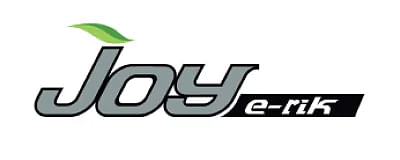GRAP-IV Enforced: Bans on Trucks implemented in Delhi NCR

Air quality reaches the ‘severe’ category: Stage IV Graded Response Action Plan (GRAP) implemented in Delhi NCR to address poor air quality. Heavy and light commercial trucks banned from entering Delhi.
Dense fog hampered visibility in Delhi NCR and Noida on Monday; strict pollution measures are implemented by the authorities to combat the worsening crisis. Delhi experienced ‘severe plus’ air quality, with the latest AOI at 481; Gurugram reported ‘severe’ air pollution levels, with an AQI of 446; and Noida reported ‘very poor’ air pollution levels, with an AQI of 378.
Restrictions on trucks and schools announced by the Commission of Air Quality Management (CAQM)
- Prohibited entry of trucks in Delhi, except for trucks carrying essential goods or services. However, all electric, CNG, LNG, and BS-VI diesel vehicles will be allowed to enter Delhi.
- Light commercial trucks registered outside Delhi are not permitted to enter, other than EVS, CNG, and BS-VI diesel trucks that carry essential goods or services.
- Strict ban on all operations of Delhi-registered medium goods vehicles (MGVs) and heavy goods vehicles (HGVs) in Delhi, except those trucks which are transporting essential goods or services.
- Offline classes were discontinued up to class 9. Teaching mode has been shifted to online classes starting Monday, while physical classes for 10th and 12th standard are proceeding as scheduled.
- NCR State governments may take a decision to discontinue physical classes for students from grades VI to IX and XI.
- Additional emergency measures may be taken by central governments, like the closure of colleges, educational institutions, and non-emergency commercial activities; an odd-even scheme on private vehicles may also be implemented if required.
In Noida, Paschimanchal Vidyut Vitran Nigam Limited (PVVNL), the power distribution company, has encouraged venue owners (wedding and other purposes) to use authorized electricity connections rather than using diesel generators.
“Diesel generators contribute significantly to local air pollution, especially during the wedding season when event venues see back-to-back bookings. We are encouraging venue owners to adopt sustainable practices by shifting to authorized power connections, which can meet their needs without harming the environment,” said Harish Bansal, chief engineer, PVVNL Noida.

What caused this pollution?
Vehicular emissions are the top contributing factor to Delhi’s air pollution during the winter season; other factors that result in poor air quality are stubble burning, road dust, and the bursting of firecrackers. According to the Centre for Science and Environment (CSE), over 50% of pollution is linked to the city’s fragmented transportation system.
Nitrogen oxides (Nox) account for 81% of pollution in Delhi, which is caused by vehicles. According to CSE, local pollution sources in Delhi account for 30.34%, while 34.97% originates from NCR districts and 27.94% from other areas.
There have been similar problems in the past during winter seasons, especially in Delhi NCR, with high AQI levels, school and other educational institutions closures, and the implementation of the Graded Response Action Plan (GRAP). This persistent damage to quality of life in cities is hard to exaggerate. Efforts to combat pollution are ongoing, but this recurring problem indicates the need for a long-term solution.
Latest Truck News
View all Truck NewsPopular Truck Brands
Popular Buses Brands
Popular Three Wheelers Brands
 Altigreen
Altigreen Euler Motors
Euler Motors Mahindra
Mahindra Piaggio
Piaggio Bajaj
Bajaj Greaves Mobility
Greaves Mobility ATUL
ATUL TVS
TVS Omega Seiki Mobility
Omega Seiki Mobility Kinetic
Kinetic Lohia
Lohia JSA
JSA YC Electric
YC Electric Udaan
Udaan SN Solar Energy
SN Solar Energy Saarthi
Saarthi Teja (Powered by Greaves)
Teja (Powered by Greaves) Jezza Motors
Jezza Motors GreenRick
GreenRick City Life Electric
City Life Electric Ampere
Ampere Baba Electric
Baba Electric E-Ashwa
E-Ashwa Bahubali E Rickshaw
Bahubali E Rickshaw Dabang
Dabang Deltic
Deltic Keto Motors
Keto Motors Mini Metro
Mini Metro Gayam Motors
Gayam Motors Gem EV
Gem EV Gkon Automotive
Gkon Automotive Skyride
Skyride Thukral Electric
Thukral Electric Baxy
Baxy Eblu
Eblu Hexall
Hexall Joy
Joy Montra
Montra Star
Star Dandera
Dandera